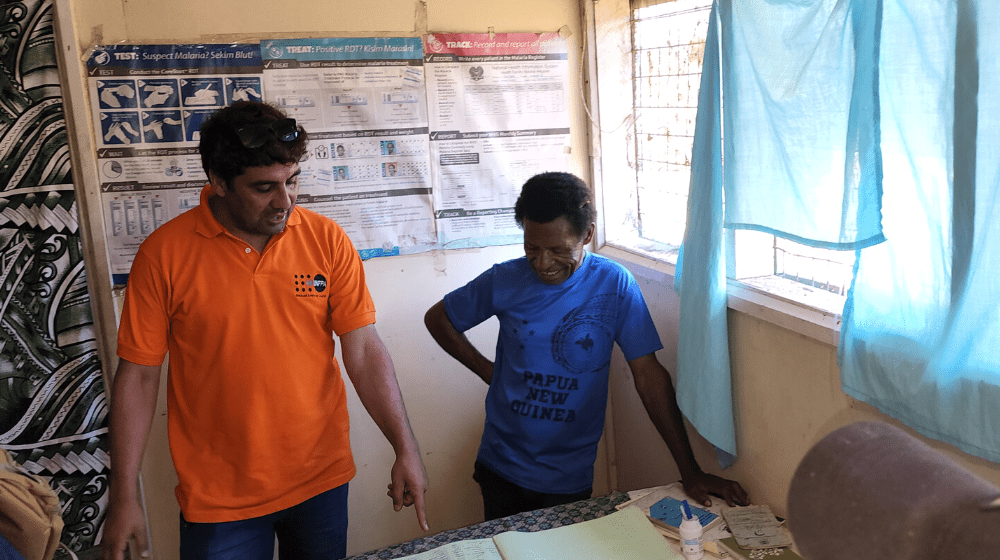For many patients who have visited a health centre or aid post, it is a common sight: empty shelves and missing medicines. A lack of stock is as frustrating for healthcare providers as it is for patients and preventing stock outs requires awareness of the demand for a particular medicine, how long the medicine will take to arrive, and expiration dates.
UNFPA is assisting health facilities and the National Department of Health to keep essential reproductive health medicines in stock through training in record keeping and inventory management training.
“During our training it was discovered that only 11% of the participants knew who to use stock cards and all of the participants have always used estimated figures to place their orders”, said UNFPA’s Debbie Kupsan.
Using estimates can not only lead to stock outs. It can lead to over-estimating an order and being left with medicines that the centre is not able to use before the expiry date.
“Also, about 16% of the primary health care workers still do not dispense medicines properly. They pour the capsules out into their hands,“ continued Ms. Kupesan.
Through a two-day Supply Chain Management course in Lae, 18 primary healthcare workers were taught simple formulas to help manage stock and strengthened understandings of the transportation, warehousing, and distribution of medicines and commodities.
“Most health centers are working hard to help the Government with evidence based data to make sounder and informed decisions regarding commodity security, family planning and maternal health medicine in the country,” said Ms. Kupesan.
"After our training, more than 75% of the participants were able to complete the stock cards properly and put away their orders.”
This training is part of UNFPA’s ongoing partnership with NDoH to provide quality reproductive health commodities and services for all women and men in Papua New Guinea. With funding from the Australian Government, the training conducted by Ms Kupesan and the team is one part of a project that includes a national Health Facilities Survey and the procurement of approximately 250,000USD worth of reproductive health supplies.
UNFPA and Sexual and Reproductive Health Commodities
UNFPA and the National Department of Health, with funding from the Australian Government, is working to address the availability and accessibility of reproductive health commodities and services with the goal to end the unmet need for family planning and end preventable maternal death. Through a coordinated approach involving procurement of essential supplies and medicines, inventory management training, and health facility assessments, this partnership will improve capacity across the workforce and see medicines available when and where they are most needed.


